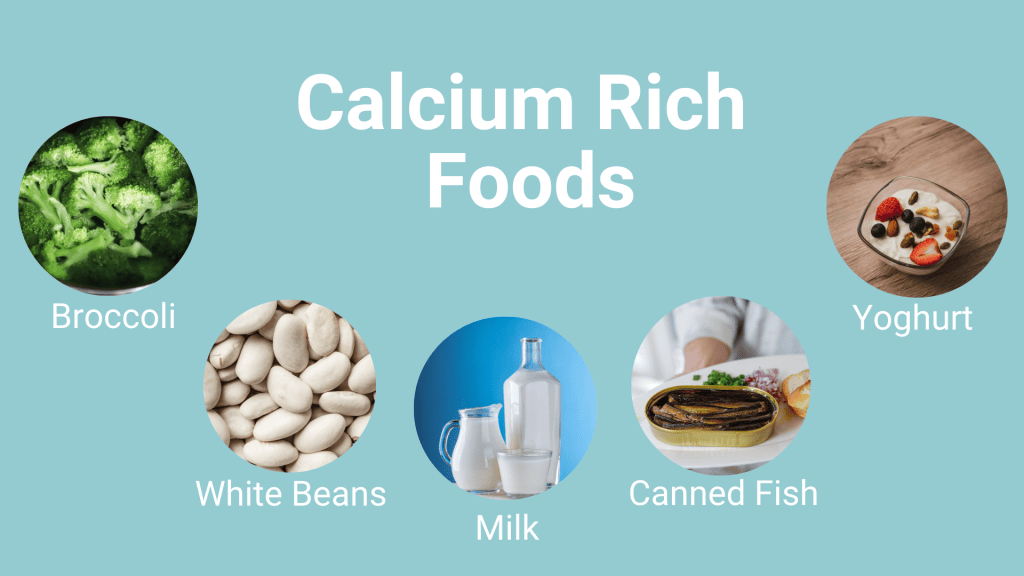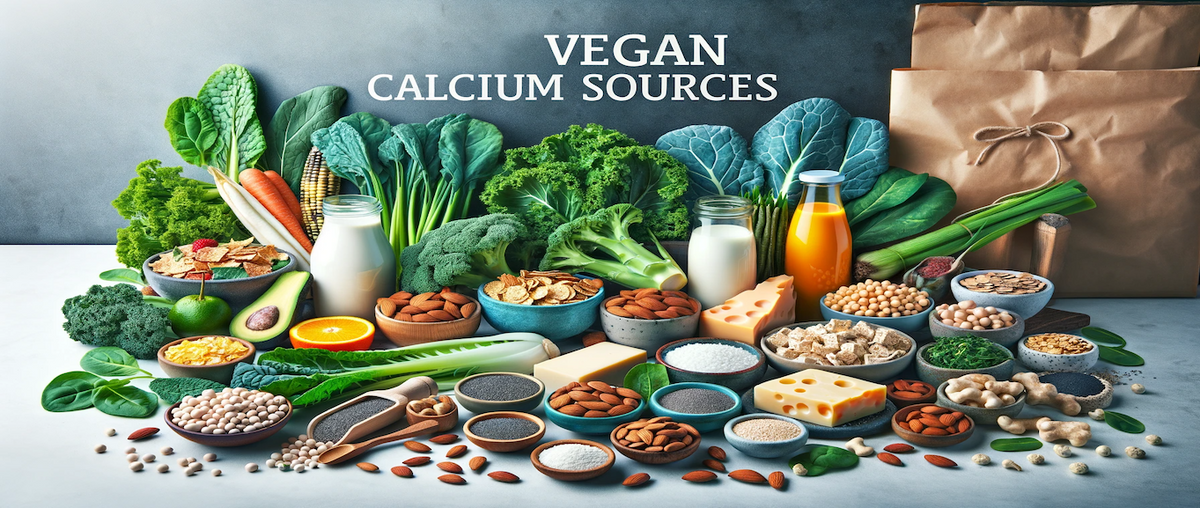For those wondering Which Plant-Based Foods Are Highest in Calcium, there are plenty of nutritious options to consider. Calcium is essential not only for strong bones and teeth but also for maintaining proper muscle function and nerve transmission. Many people think dairy is the primary source of calcium, but a range of plant-based foods also offer rich calcium content, making it easy to meet daily needs without animal products. Leafy greens like kale and collard greens, along with fortified plant milks, chia seeds, tofu, and almonds, are all high in calcium. Including these foods in a well-rounded diet can help ensure you get sufficient calcium intake while supporting a plant-based lifestyle.

Why Is Calcium Important?
Calcium is known for its role in bone health, but it also contributes to muscle function, nerve signaling, and hormone release. Deficiency in calcium can lead to weakened bones, a condition known as osteoporosis. Therefore, it’s critical for everyone, especially those on plant-based diets, to incorporate calcium-rich foods into their daily meals.
Daily Calcium Requirements
The daily recommended intake for calcium varies by age and gender, but for most adults, the recommendation is around 1,000 mg. For women over 50 and men over 70, the intake increases to 1,200 mg. To ensure optimal health, aim to meet these requirements through a variety of plant-based foods.
Top Plant-Based Foods High in Calcium
Here’s a list of plant-based foods high in calcium that can be incorporated into any diet:

1. Leafy Green Vegetables
- Kale: One cup of cooked kale provides approximately 177 mg of calcium.
- Collard Greens: A cup of cooked collard greens can offer over 250 mg of calcium.
- Bok Choy: This Chinese cabbage provides around 160 mg of calcium per cup when cooked.
Leafy greens are not only packed with calcium but also offer fiber, vitamin K, and other nutrients.
2. Broccoli and Other Cruciferous Vegetables
- Broccoli: One cup of cooked broccoli contains about 62 mg of calcium.
- Turnip Greens: Cooked turnip greens can provide around 200 mg of calcium per cup.
These vegetables are excellent for supporting bone health and are versatile in recipes, from stir-fries to salads.
3. Fortified Plant Milks
- Almond Milk: Many almond milk brands fortify their product to contain about 300 mg of calcium per cup, similar to cow’s milk.
- Soy Milk: Fortified soy milk also provides a significant calcium boost, often around 300 mg per cup.
- Oat Milk: Some oat milk varieties are fortified, providing approximately 350 mg per cup.
These fortified beverages are an easy way to add calcium to your diet. They can be used in smoothies, cereal, or coffee.
4. Tofu and Tempeh
- Tofu (Calcium-Set): Half a cup of calcium-set tofu can contain up to 861 mg of calcium.
- Tempeh: This fermented soybean product has about 184 mg of calcium per cup.
Tofu and tempeh are not only high in calcium but also provide protein, making them ideal for plant-based diets.
5. Seeds
- Chia Seeds: Two tablespoons of chia seeds provide around 179 mg of calcium.
- Sesame Seeds: One tablespoon of sesame seeds offers about 88 mg of calcium.
- Flax Seeds: While flax seeds have lower calcium, they’re still beneficial with about 26 mg per tablespoon.
Seeds are a fantastic addition to smoothies, oatmeal, or salads, offering a concentrated source of calcium and healthy fats.
6. Beans and Lentils
- White Beans: One cup of cooked white beans contains about 161 mg of calcium.
- Black Beans: These beans offer around 46 mg of calcium per cup.
- Chickpeas: Chickpeas contain about 80 mg per cup when cooked.
Beans and lentils provide protein, fiber, and a range of minerals, making them excellent choices for plant-based meals.
7. Nuts
- Almonds: A quarter cup of almonds contains approximately 94 mg of calcium.
- Brazil Nuts: These nuts offer around 45 mg of calcium per ounce.
Almonds, in particular, are an excellent source of calcium and can be eaten as a snack or added to dishes.
8. Figs
- Dried Figs: Half a cup of dried figs provides around 120 mg of calcium.
Figs are a sweet treat that also supplies fiber and antioxidants, making them a nutritious addition to any diet.
9. Seaweed
- Wakame: This type of seaweed provides about 60 mg of calcium per cup.
- Nori: Often used in sushi, nori contains calcium and other minerals beneficial for health.
Seaweed is a unique addition to a plant-based diet, offering minerals like iodine along with calcium.
10. Fortified Foods and Juices
- Orange Juice: Many brands of orange juice are fortified with calcium, providing about 300 mg per cup.
- Breakfast Cereals: Some cereals are fortified, offering up to 100 mg of calcium per serving.
Fortified foods can be an easy way to boost calcium intake, especially for those with busy lifestyles.

Tips to Improve Calcium Absorption
Even if you’re consuming calcium-rich foods, ensuring your body can absorb calcium effectively is crucial. Here are some tips:
- Combine with Vitamin D: Vitamin D helps the body absorb calcium. Try to get some sunlight daily or consume fortified foods rich in vitamin D.
- Limit Sodium and Caffeine: High sodium and caffeine intake can increase calcium loss from the body.
- Eat Calcium-Rich Foods Throughout the Day: The body absorbs calcium more efficiently in smaller doses spread throughout the day.
Meeting Calcium Needs on a Plant-Based Diet
Transitioning to a plant-based diet doesn’t mean compromising on nutrients. With a variety of calcium-rich foods, it’s entirely possible to meet and even exceed daily calcium requirements without dairy. Focus on a well-rounded diet that includes these calcium-packed plant foods, and remember to balance it with other essential nutrients for optimal health.

Conclusion
Understanding which plant-based foods are high in calcium is key to building a balanced and nourishing diet. From leafy greens and fortified milks to nuts and beans, there’s no shortage of plant-based sources to help you meet your calcium needs. Incorporating a mix of these foods, alongside mindful eating practices, can support strong bones and overall well-being.







